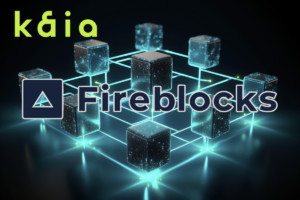News of the NFT owner who placed their assets as collateral for an $8.3 million loan is currently making rounds around the NFT ecosystem.
Legend Of ox65od – The Story So Far
In February 2022, the famous auction house Sotheby’s was slated to offer a lot of 104 high-value CryptoPunks NFT, an Ethereum based NFT launched in 2017. The collection was set to bring in an estimated $20 million to $30 million.
Unbeknownst to the auction house, however, the owner of the CryptoPunks NFT, a person known only under the pseudonym “ox65od”, had other plans, and minutes before the auction started, ox65od announced their withdrawal of the lot via this:
nvm, decided to hodl https://t.co/WdQ5H7I0fl
— 0x650d (@0x650d) February 24, 2022
In a subsequent tweet, the NFT owner posted a meme mocking the auction house, inferring that rugging Sotheby’s is a better way to take their digital asset mainstream.
Barely a month after this incident, ox65od is once again in the news and on the lips of every stakeholder in the NFT ecosystem, this time for taking out a loan of 8.3 million dollars using their CryptoPunks set as collateral.
The loan is the most significant NFT-related loan reported to date. “Thanks to the chads @metastreetxyz for unlocking 8.32m in liquidity on my CryptoPunks while allowing me to retain upside exposure to my collection,” they announced via this:
Thanks to the chads @metastreetxyz for unlocking 8.32m in liquidity on my CryptoPunks while allowing me to retain upside exposure to my collection 🔥🔥 https://t.co/r6QIdOP3Q4
— 0x650d (@0x650d) April 1, 2022
NFTs: The Gift That Never Stops Giving
ox65od’s loan is yet another example of a growing trend amongst NFT collectors who seek to tap into their valuable holdings to unlock short-term liquidity rather than sell off their NFT outright for a one-time payment.
These loans are made possible by peer-to-peer marketplace platforms that connect NFT owners with liquidity providers who can offer them the loans they seek in Wrapped Ethereum (WETH) or DAI. Examples of such platforms include NFTfi, Arcade, and Drops
This innovation means that an NFT holder can connect a wallet to an NFT-backed lending platform such as NFTi, and choose which NFTs they would like to seek a loan on, after which providers can begin to make offers.
If an offer is accepted, funds would be sent from the liquidity provider to the NFT holder, with the NFT in question kept in a smart escrow contract for the loan duration.
Risk vs Reward: What This Means Going Forward
Like all things in life, NFT-backed lending platforms are not without disadvantages. There exists a level of risk on both ends of the spectrum.
If a borrower cannot pay back the loan after its stipulated duration, they risk losing the asset to the lender. The volatile nature of the NFT market also puts a lender in harm’s way, as there is always a chance that an asset can plummet in value.
According to Stephen Young, CEO of NFTfi, loans against lower value NFTs are more inclined to default, creating a situation whereby NFT holders stand to benefit more by simply defaulting on their loans.
Author
-

Proficient Web3 commentator with a penchant for analyzing decentralized applications and their societal implications.




